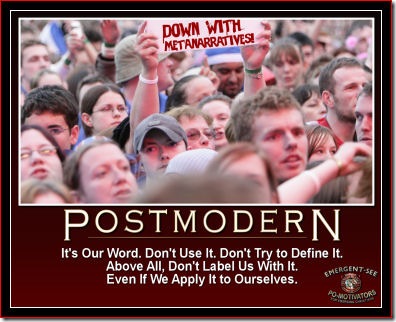 Interesting article from Jonathan D. Fitzgerald at Patheos. He notes that research shows that conservative denominations are growing the fastest.
Interesting article from Jonathan D. Fitzgerald at Patheos. He notes that research shows that conservative denominations are growing the fastest.
The spread of conservative Christianity is not a ratification of Mohler’s [the president of the Southern Baptist convention] brand of fundamentalism because it is more truthful, but because it does what humans want religion to do: it provides hard and fast answers to the questions we ask. It dictates rules and allows us to bypass the uncomfortable mystery inherent in trying to understand supernatural things. …
Just because something is growing doesn’t mean it’s healthy. …
Can we return the mystery to Christianity, can we celebrate the ambiguities, and work together to forward the Gospel despite differences in theology? Or, will we continue to export a rigid brand of Christianity that answers humanity’s modern desire for certainty and our eternal desire for order, but looks more and more like American culture, and less like the culture of the early church? …
It may be more difficult to offer the truth without the comforts associated with rigid laws, but, I am suggesting, it is something more akin to the good news that Jesus charged us with sharing.
 Hmm … I have to agree that growth does not prove the excellence of anyone’s theology. There are plenty of movements that are growing rapidly despite offering very poor theology.
Hmm … I have to agree that growth does not prove the excellence of anyone’s theology. There are plenty of movements that are growing rapidly despite offering very poor theology.
And I also agree that legalism offers rules and rituals that provide comfort in entirely the wrong way — “If I sing without an instrument, God will save me.” But that’s hardly the Baptist position.
Are there ambiguities in the scriptures? Of course. Not everything is made plain. But does that mean it’s entirely ambiguous? Or that we should celebrate a failure a grow? And may ambiguity prevent us from dealing with some of the hard teachings? I think not.
So I’m wondering what you think. Is Fitzgerald fair in his treatment of the Baptists?





I'm not sure what he means by "conservative." To me, a conservative church is one that is careful to obey the scriptures thoroughly. And that is exactly the kind of church we should be exporting. Sometimes, what people see as ambiguities are things they just aren't willing to obey fully.
Good question. I guess I'm not sure what he means when he says "progressive/post-evangelicals". Who are those people and of course what do they believe….
Fitzgerald is using broad brush strokes that paint confusion. The struggle gets condensed down to "conservative" equals "rigid rules" and the alternative equals the "real spirit of Jesus and the Gospel." But that misses the character of the struggle.
It has to do with a general assessment of spiritual reality that is consuming the nation and many religious groups. Jennifer Geddes' Evil After Postmodernism gets at it well. Note: Geddes is no Christian and believes the nation is headed in the right direction. She notes accurately that postmodernism is at its root the supposedly healthy belief that a spiritual siege is only "in our minds." Postmodernism believes Satan and evil to be unreal; evil is no more than social or cultural. And even if we do not say it, we live and worship as if it is true. Scripture reading during the assembly? The importance of singing the Word of God together? Conventional wisdom suggests we fill our assemblies with personal "feel good" dialog/videos and avoid the "rigid" sound of Scripture being read at length. By doing such we accommodate postmodernism — and its taproot. Scripture becomes less important and obeying God's commands sounds too harsh, too "rigid." The simple words of Jesus in John 14:30-31 get no hearing. That, more than anything else, gets at the heart of ethical and doctrinal struggle in our day.
Compare Fitzgerald to Brian McLaren's announcement about sexual identity and the obsolete character of early Christian ethics. McLaren's announcement is actually no more than a practical application of his view of early Christianity. He stated in A Generous Orthodoxy that the ancient cults were partners with the Gospel. (pp. 257-8) An astonishing announcement. He misses the close association Paul makes between the ancient cults and the work of Satan, and that becomes McLaren's foundation for "generous" orthodoxy versus "rigidity." And it becomes his foundation for dismissing Romans 1:24-32.
Both Fitzgerald and McLaren sound the same the message and both face the same flaw. They miss the reality of a spiritual siege. And in doing so they ignore how important is our drawing close to Christ by reading/listening to His Word often, singing it often, praying for help and obeying our Father.
In Christ,
Bruce Morton
Katy, Texas
It's interesting that the answer to the "postmodern ambiguities" seems not to be a "postmodern ambiguos gospel" but heralding the truth of God's Word.
Fitzgerald seems to dislike that, because this would meen he'd have to put aside his "freedom by ambiguity" in order to obtain "freedom by truth".
Alexander
The Gospel, the Good News, has never been about a church, or a doctrine or a conservation, moderate or liberal platform…It's about a Person. It's about Jesus…No, The Gospel IS JESUS…
Check out "The Book That Made Your World" by Vidal Mangalwadi. Awesome take on the impact of BIblical Christianity on the world. Seriously rich read and relatively hot off the press.